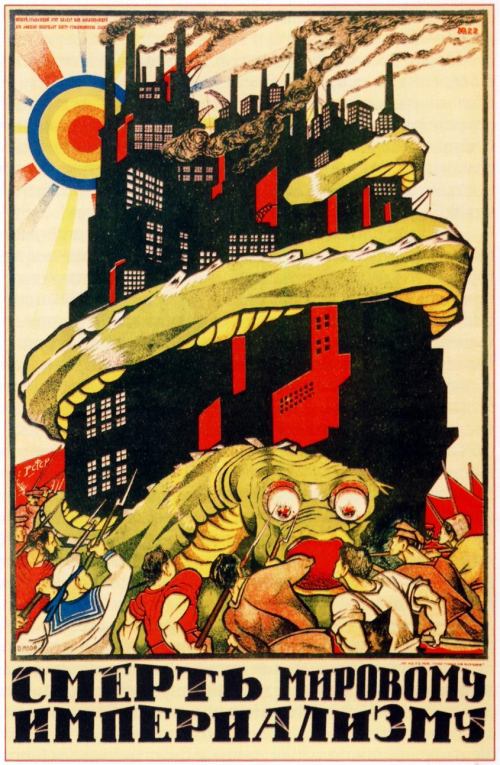A – fallen – Red Star Over Russia…

Yesterday I went to the Tate Modern in London to see the exhibition ‘Red Star Over Russia’ and I’d heartily recommend it. According to the Tate,
2017 marks the centenary of the October Revolution. Rebellion brought hope, chaos, heroism and tragedy as the Russian Empire became the Soviet Union, endured revolutions, civil war, famine, dictatorship and Nazi invasion. A new visual culture arose and transformed the fabric of everyday life.
But to me what it represented, ultimately, was a wonderful idea rent asunder by the venal reality of politics, the overthrow of one tyranny – an absolute monarch – only to be replaced by another more brutal. I suppose that’s the one never changing lesson that history teaches us. Tyranny replaces tyranny – let’s see how Zimbabwe gets on – and the worst kind of tyranny is one that offers the illusion of freedom.
How free are we? Is our democracy just a sop to us saps? Do our elections change anything? I mean not tinkering with things at the margins, but substantive change. Or do things continue much as before? Has there been any change in the prevailing economic orthodoxy, capitalism, whereby humans are necessary only make and buy the things companies make?
Has anything really changed since Robert Tressell explained in The Great Money Trick in ‘The Ragged Trousered Philanthropists’ over 100 years ago? In it, the hero, Frank Owen explains that money is the cause of human misery. His workmates are unconvinced. So Owen tries to convince them. He employs’ his workmates cutting up the bread to illustrate that the employer – who does not work – generates personal wealth whilst the workers effectively remain no better off than when they began, endlessly swapping coins back and forth for food and wages. This is Tressell’s practical way of illustrating the Marxist theory of surplus labour, which in the capitalist system is generated by labour.
If there any other rational explanation to explain how every political decision is done so to favour business interests, I’ve yet to have come across it. It’s a bit like when I first read Darwin’s theory of evolution, it just made undeniable sense to me. In much the same way economic planning is shaped to favour the interests of capital, a form of economic Darwinism, if you will.
Nowhere is this series of beneficial coincidences more apparent – to me at any rate – than in education, which helps create the conditions necessary to effect a suitably compliant workforce. Think this a trifle far fetched? Well the proof is in the pudding!
First off, convince young people that university education is a good thing and something they all should aspire to, that a degree will make them more attractive to employers, that sort of thing. This is aided not only by ensuring that the National Curriculum is increasingly focused on putting the needs of employability uppermost, but by constant reinforcing of this notion in the press – which in itself is owned by vested capital interests. Secondly introduce and then raise tuition fees. When they eventually leave university they’ll have not only a degree but also debt – the average being £60,000 – a nice way to start adult life don’t you think? Then having been softened up they’ll accept low wages and an erosion of their rights as workers.
This post has veered way off topic. I’d intended to write exclusively about the Tate exhibition and how the highlight for me wasn’t in the exhibition itself. It was a great example of graphic design that had a simple elegance. It was public art that conveyed information in an instantly graspable way. And because it wasn’t on a wall in a frame or had a rope barrier in front of it, some people might not consider it ‘art’.

But one thing I have to mention is of the irony of an exhibition dedicated soviet propaganda, full of art that celebrated the idea of a communist utopia, exits visitors into a gift shop. Although maybe that’s an intentionally ironic statement about how capitalism has an inherent reductive capability, to bastardize ideals into commodities